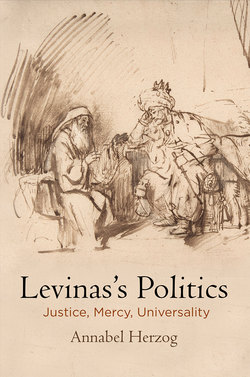Levinas's Politics

Реклама. ООО «ЛитРес», ИНН: 7719571260.
Оглавление
Annabel Herzog. Levinas's Politics
Отрывок из книги
Levinas’s Politics
JUSTICE, MERCY, UNIVERSALITY
.....
Is this to say that, for Levinas, any corpus of questioning, any hermeneutic system, would be political, at least in part? The answer is yes, by definition. Moreover, the two questioning systems with which Levinas worked—the Talmud and the philosophical tradition that issued from the Platonic dialogues—were political, or more exactly, they were the only “politics” left to two elites that had lost concrete sovereignty: Plato founded the Academy after giving up all hope of reforming the polis, and the rabbis wrote down the oral law after losing all hope of reestablishing political power in the Land of Israel. One could here object that given these conditions both the Talmud and philosophy are eminently non-political, or even anti-political.30 Even a superficial reading of Levinas’s work, however, makes clear that he puts philosophy and politics in the same ontological category. Similarly, his insistence on the political character of basic questioning, at least from a certain point of view, puts the Talmud—by contrast with prophetic ethics—in the same category as politics. This explains Levinas’s choice of the Talmudic commentaries to convey his political thinking, but only partly, because traditional philosophy is also a questioning system. Thus, we need to inquire into other possible explanations.
The Talmud, as Whitehead might put it, is a commentary on the Torah somewhat in the way that European philosophy is a commentary on Plato. The Talmud, however, does something that philosophy often neglects: it examines the law in the light of particular cases. The Talmud confronts the apodictic law with concrete situations. As Levinas writes, “The Talmud, according to the great masters of this science, can be understood only from the basis of life itself” (QLT 20; NTR 8). As such, Talmudic commentary does not merely explain the Law but deconstructs it, tests it, strengthens it, and sometimes overturns it. Likewise, Levinas’s Talmudic commentaries reinforce and confront the ethical call with particular situations.31 Levinas calls this method “paradigmatic modality”: “Without fading before their concepts, things denoted in a concrete fashion are yet enriched with meanings by the multiplicity of their concrete aspects” (ADV 127; BTV 103).32 The readings ask the question: What does ethics mean in situations that involve more than the ego and the other? What does ethics mean, therefore, in concrete situations that are, by definition, non-ethical? Levinas chose not to take his examples from contemporary everyday life but borrowed cases drawn by the rabbis from the everyday life of their time or from their imagination. For Levinas, these cases become paradigms.
.....